Contents
Guide

Jews in Popular Science Fiction
Jewish Science Fiction and Fantasy
Series Editor
Valerie Estelle Frankel
Jewish science fiction is a monumental literary genre worldwide, with hundreds of novels and short stories along with an enormous canon of films, plays, television shows, and graphic novels. Its also strikingly popular. Not only have works of this category just won the Hugo and World Fantasy Award while dominating bestseller lists, but talks on the subject are standing room only. The Own Voices movement has led to a renaissance of Jewish fantasy, even as its authors create imaginary worlds reflecting their unique cultures. This series seeks subtopics of exploration within the massive canon, defining aspects of Jewish genre fiction and its unique qualities. It features both monographs and anthologies focused on trends, tropes, individual authors, beloved franchises, and so on. Scholars of all disciplines are welcome, especially those in Jewish studies, literature, and media studies, while interdisciplinary and international perspectives are particularly encouraged.
Titles in the series
Jews in Popular Science Fiction: Marginalized in the Mainstream , edited by Valerie Estelle Frankel
Goliath as Gentle Giant: Sympathetic Portrayals in Popular Culture , Jonathan L. Friedmann
Jewish Science Fiction and Fantasy through 1945: Immigrants in the Golden Age, Valerie Estelle Frankel
Jews in Popular Science Fiction
Marginalized in the Mainstream
Edited by Valerie Estelle Frankel
LEXINGTON BOOKS
Lanham Boulder New York London
Published by Lexington Books
An imprint of The Rowman & Littlefield Publishing Group, Inc.
4501 Forbes Boulevard, Suite 200, Lanham, Maryland 20706
www.rowman.com
86-90 Paul Street, London EC2A 4NE
Copyright 2022 by The Rowman & Littlefield Publishing Group, Inc.
All rights reserved. No part of this book may be reproduced in any form or by any electronic or mechanical means, including information storage and retrieval systems, without written permission from the publisher, except by a reviewer who may quote passages in a review.
British Library Cataloguing in Publication Information Available
Library of Congress Cataloging-in-Publication Data
Names: Frankel, Valerie Estelle, 1980- editor.
Title: Jews in popular science fiction : marginalized in the mainstream / edited by Valerie Estelle Frankel.
Description: Lanham : Lexington Books, [2022] | Series: Jewish science fiction and fantasy | Includes bibliographical references and index. | Summary: This book analyzes Jewish tropes in popular science fiction including Star Trek, Marvel, and other top franchises. The chapters examine representations of Jewish characters and culture in the genre that range from poignant metaphor to banal tokenism Provided by publisher.
Identifiers: LCCN 2022030648 (print) | LCCN 2022030649 (ebook) | ISBN 9781666901450 (cloth) | ISBN 9781666901467 (epub) | ISBN 9781666901474 (paperback)
Subjects: LCSH: Jews in mass media. | Science fiction, AmericanHistory and criticism. | Mass mediaUnited StatesHistory. | American literatureJewish authorsHistory and criticism.
Classification: LCC P94.5.J482 U644 2022 (print) | LCC P94.5.J482 (ebook) | DDC 791.45/6520924dc23/eng/20220714
LC record available at https://lccn.loc.gov/2022030648
LC ebook record available at https://lccn.loc.gov/2022030649
 The paper used in this publication meets the minimum requirements of American National Standard for Information SciencesPermanence of Paper for Printed Library Materials, ANSI/NISO Z39.48-1992.
The paper used in this publication meets the minimum requirements of American National Standard for Information SciencesPermanence of Paper for Printed Library Materials, ANSI/NISO Z39.48-1992.
To my pandemic virtual game night palsRachel Bloom, Gabrielle DePesa, Jeremy Erman, Jonathan Erman, and Ben Pastcan. Every author needs friends to argue books and scifi with, and youve been amazing.
Jews created American science fiction. It seems like a very broad and over-generous statement, but its true. In 1926, Belgian immigrant Hugo Gernsback launched Amazing Stories, the first science fiction magazine. Unlike his predecessors like Jules Verne and H. G. Wells, he based his fiction in near-future technology: his electronics-based short story Ralph 124C 41 + was impressive for predicting radar, microfilm, synthetic fabric, vending machines, tape recorders, the jukebox, the television, satellites, and spaceflight. This community soon produced science fiction clubs like his Science Fiction League, the science fiction publishers and agents who started in his magazines, as well as fanzines, cosplay, and the first scifi conventions.
Likewise, this was the golden age of comics, which was another industry where Jews could be hired, because it was so new. Two Jews invented Superman, who functions as a Jewish metaphor, a refugee sent to America like Moses, who hides his alien heritage and abilities behind a geeky, assimilationist faade, changing his Hebrew-sounding birth name to the Americanized Clark Kent. Matthew Diamond writes about this metaphor along with the Superman war comics and anti-fascist stance of the era. Batman, night to Supermans day, comes from the same era. If Superman is covertly yet recognizably Jewish, millionaire Bruce Wayne gives off a very goyish impression. At the same time, like Clark Kent, he seems a Jews dream of assimilation, and such an insider that he seems to be overcompensating. Over the years, Jewish creators added more overtly Jewish characters to Gotham with Batwoman, Ragman, Harley Quinn, Bombshells characters, and recently, Whistle. Jonathan Sexton considers all these along with how well different creators handle the Jewish depiction... with even hints of Judaism for the Caped Crusader himself. While Marvel has a similar history with the Jewish team of Stan Lee and Jack Kirby creating the Avengers and X-Men to address minority life, my own essay covers more recent adaptations, considering how much Jewishness has been removed onscreen from X-Mens Kitty Pryde as well as Ragman, Felicity Smoak, Martin Stein, and Batwoman in the Arrowverse. Even in this era of multicultural celebration, only Magneto and the cartoon version of Harley Quinn have kept much of their heritageand both present it as a problematic source of their villainy.
After World War II , fantasy novels boomed, arguably kicked off by J. R. R. Tolkiens Lord of the Rings. In Arthur S. Harrows The Quest for the Kosher Dragon, he considers to what extent Tolkien included Jews in his fantasy world and comes up with surprising answers. Meanwhile, it took a Jewish creator, Rod Serling, to not only invent a dramatic new type of storytelling with The Twilight Zone, but also film Holocaust episodes in a decade in which people werent prepared to discuss the subject. Professor Judy Klass examines these stories, through her university classes that push students to examine the metaphors as well as the origin of so many science fiction tropes.
In this era, Jewish science fiction writers (like mainstream Jewish American writers) began telling overt stories of their culture, instead of the previous generations metaphors about alienation and ostracism in an increasingly fascist world. The first Jewish science fiction anthology, Wandering Stars, dates to this time, as do memorable Jewish science fiction works by Peter S. Beagle, Harlan Ellison, Avram Davidson, Harry Harrison, Alfred Bester, Cynthia Ozick, and others. Many of these novels incorporate the Jewish supernatural like ghosts, dybbuks, and particularly the famous golem. Mara W. Cohen Ioannides and Fraser Sherman each tackle this top Jewish monster and divide up its appearance in a long list of novels and comics along with the golem TV episodesusually synonymous with token Jewish episodes. They both discover quite a spectrum of depictions as they consider how the legend and the Jewish characters are presented traditionally or subverted.


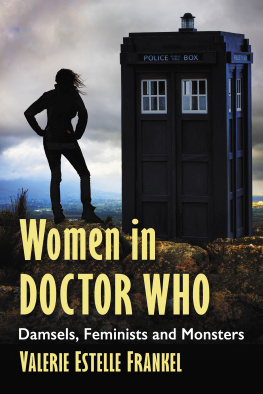
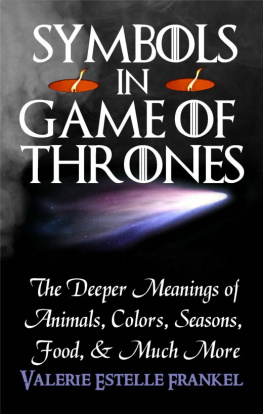
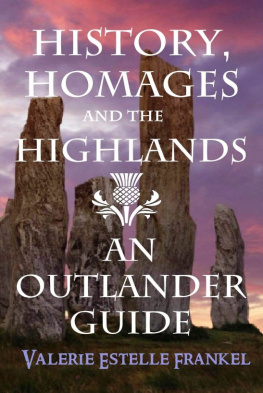
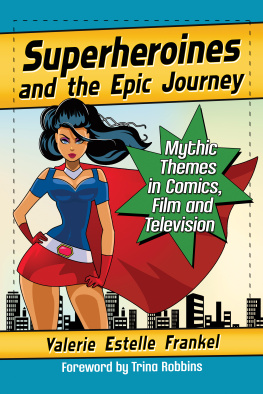
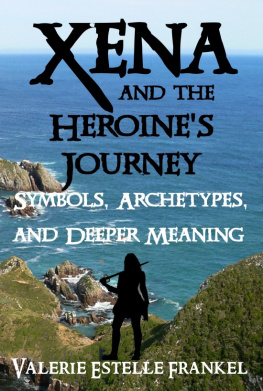
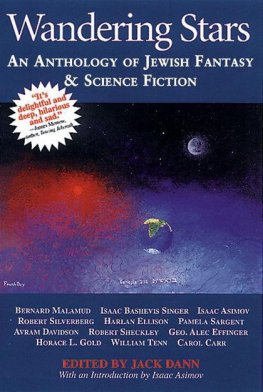
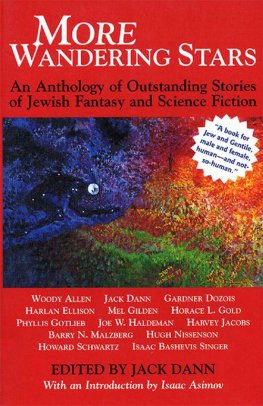

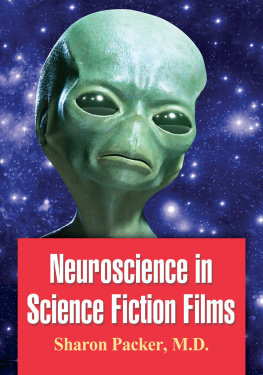

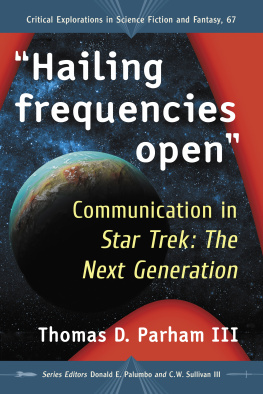
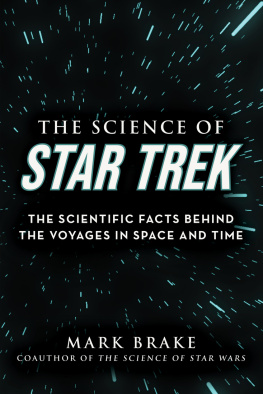
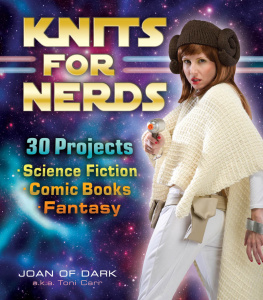
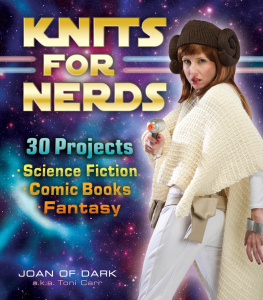
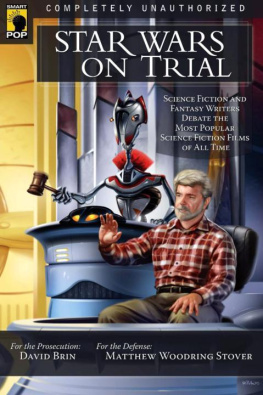
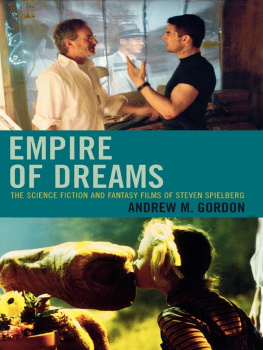

 The paper used in this publication meets the minimum requirements of American National Standard for Information SciencesPermanence of Paper for Printed Library Materials, ANSI/NISO Z39.48-1992.
The paper used in this publication meets the minimum requirements of American National Standard for Information SciencesPermanence of Paper for Printed Library Materials, ANSI/NISO Z39.48-1992.